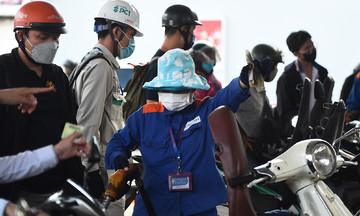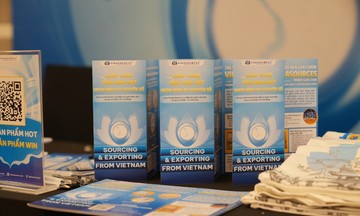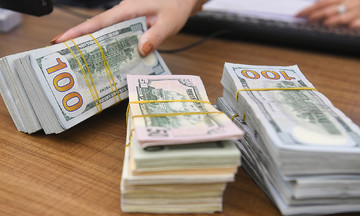In a Ho Chi Minh City supermarket, Quan scans a QR code on a bag of Da Lat sweet potatoes. The screen displays the product's detailed history: Japanese sweet potato variety, grown in Lam Dong, harvested last week, freeze-dried, and on the shelf for two days. This bag is one of over 15 million products tagged by Checkee, the traceability platform Quan founded in 2018. The system currently records 35 million scans monthly.
A digital 'identity card' for every product
Unlike conventional barcodes, Checkee digitizes a product's entire journey, from planting and production to testing, packaging, and retail. All information is organized into what Quan calls a "digital identity card" for each item.
Each QR code unlocks a product's history, built from multiple data sources: location, time, production stage, inspection unit, storage conditions, and more. All data is automatically stored and updated. This not only provides transparency but also enables discrepancy alerts and quick tracing of defective products.
Comprehensive information enhances a product's competitiveness, not only in domestic supermarkets but also in demanding markets like Japan, the EU, and the US.
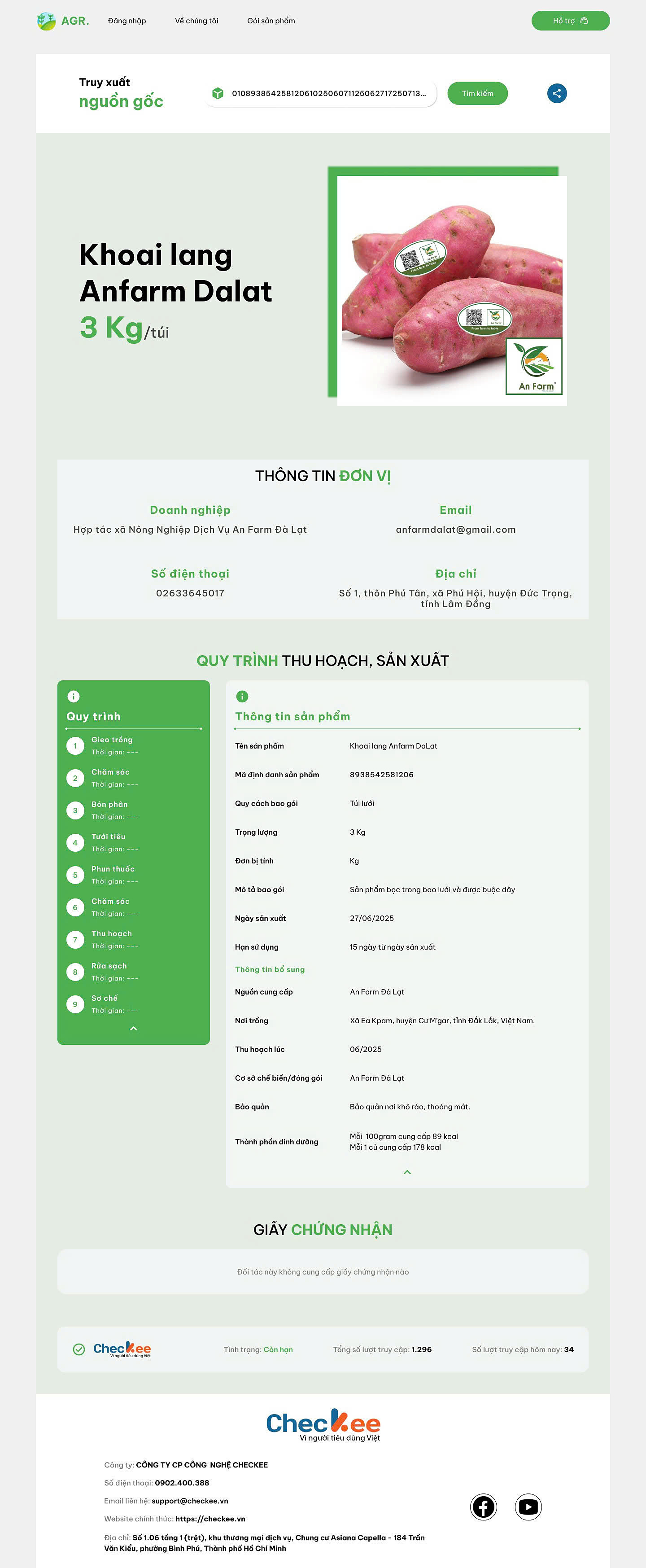 |
Information fields within the sweet potato package using Checkee's traceability system. Screenshot |
Information fields within the sweet potato package using Checkee's traceability system. Screenshot
From first failure to a new beginning
Checkee's journey began after Quan's entertainment software startup failed. Learning from that experience and inspired by a 2015 trip to Japan, he decided to launch a traceability venture. In 10/2018, he and five colleagues founded Checkee, funded by family, in a small office of just over 20 square meters.
For the first six months, the team researched various products to develop suitable processes. The real challenge came when they began pitching their idea, facing rejection 90% of the time. Quan shifted strategy, targeting larger companies to build credibility.
Winning over the first major clients
Their first break came in 2020 with Sopet Gas One, a Japanese gas company in Vietnam. Losing billions of Vietnamese dong annually due to cylinder theft, and finding imported solutions costly and inflexible, Sopet Gas One gave Checkee two weeks to prove its worth.
Working nearly 20 hours a day, the team developed an identification system, tested weather-resistant ink, and synchronized codes with inspection serial numbers. The result: scanning the code updated all data each time a cylinder entered or left a filling station. Users could now track origin, transportation, and inspection history.
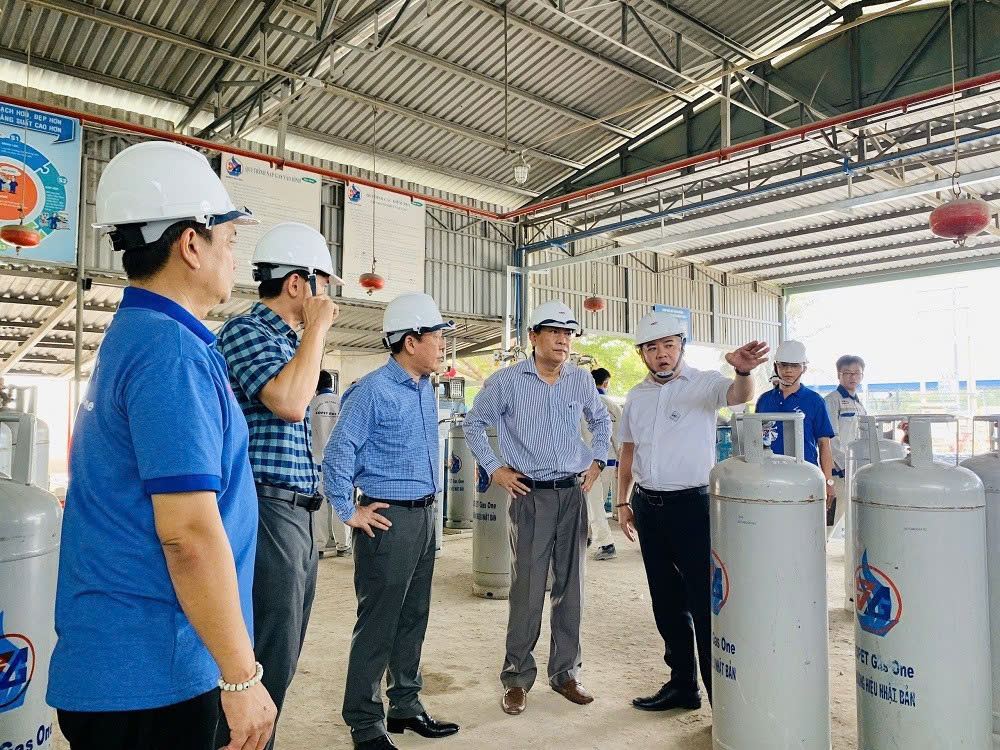 |
Quan (white shirt) with partners and colleagues on the gas company traceability project. Photo: NVCC |
Quan (white shirt) with partners and colleagues on the gas company traceability project. Photo: NVCC
Their next project was with a 20-year-old fertilizer company. To understand the process, the Checkee team ate with workers and slept in warehouses for three months, traveling across provinces from the Central Highlands to the Mekong Delta. Developing water- and sun-resistant labels for agricultural products took nearly two months of testing.
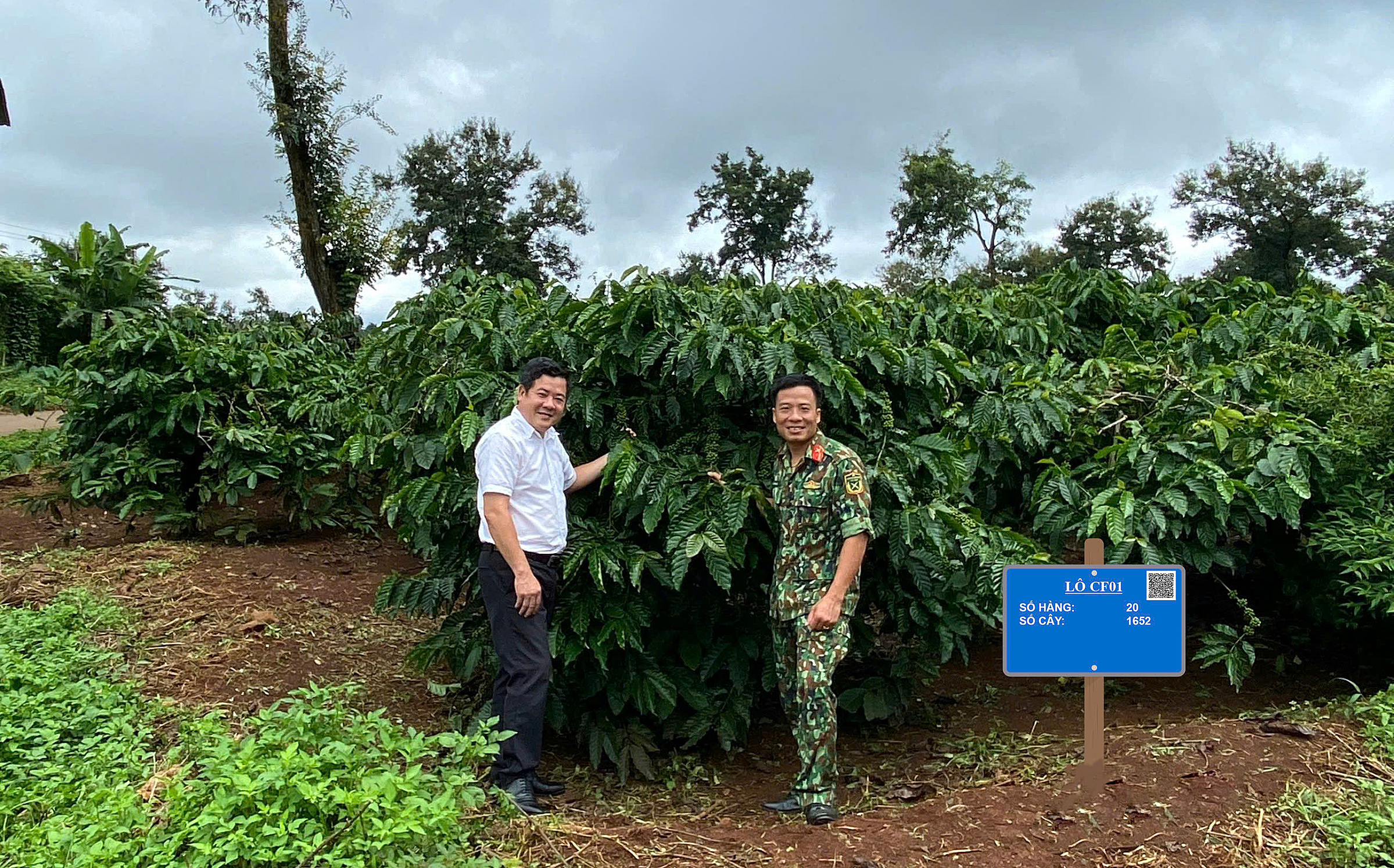 |
Quan (white shirt) during a field trip to tag coffee plants. Photo: NVCC |
Quan (white shirt) during a field trip to tag coffee plants. Photo: NVCC
According to Quan, Checkee's strength lies in its multi-layered data system. The QR code acts as a gateway to underlying technologies like blockchain, RFID, NFC, and 24/7 IoT sensor monitoring. For example, with exported sweet potatoes, the QR code enables quick tracing, RFID records transportation conditions, and blockchain logs the entire process in real-time, preventing alterations.
"Products need more than attractive packaging or good advertising; they must demonstrate quality through a digital journey," Quan said.
Ambitions for international expansion
In 7/2025, Checkee sought funding, aiming for 150 billion Vietnamese dong in revenue within three years. Investors see the startup as aligned with the growing demand for supply chain transparency, crucial in combating counterfeiting.
"We want to give every Vietnamese product an identity, so Vietnamese goods can stand tall in the global market," the Checkee director shared.
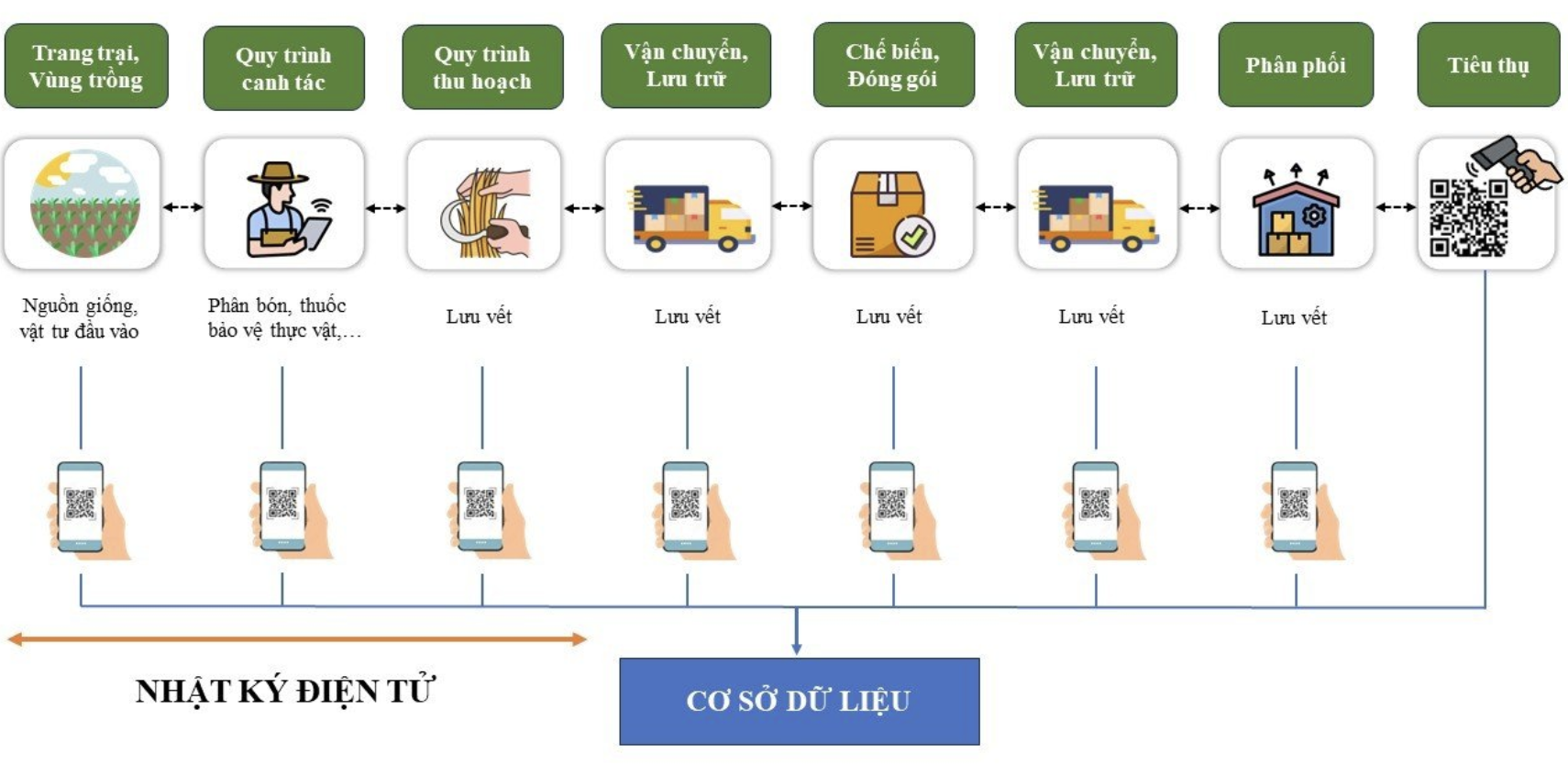 |
Diagram of Checkee's agricultural product traceability process. Source: Checkee |
Diagram of Checkee's agricultural product traceability process. Source: Checkee
From a bag of dried sweet potatoes in a Ho Chi Minh City supermarket to exports to Japan, Checkee is rewriting the story of Vietnamese products – a story of transparency, quality, and trust.
Thai Anh



